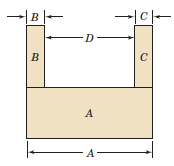The rate of return of an asset is the change in price divided by the initial price
Question:
μ1 = 0.12,σ1 = 0.14,μ2 = 0.04,σ2 = 0.02,μ3 = 0.07,σ3 = 0.08.
(a) Assume that these rates of return are independent. Determine the mean and variance of the rate of return after one year for
the entire investment of $10,000.
(b) Assume that X1 is independent of X2 and X3 but that the covariance between X2 and X3 is ˆ’0.005. Repeat part (a).
(c) Compare the means and variances obtained in parts (a) and (b) and comment on any benefits from negative covariances
between the assets.

Stocks or shares are generally equity instruments that provide the largest source of raising funds in any public or private listed company's. The instruments are issued on a stock exchange from where a large number of general public who are willing... Distribution
The word "distribution" has several meanings in the financial world, most of them pertaining to the payment of assets from a fund, account, or individual security to an investor or beneficiary. Retirement account distributions are among the most...
Fantastic news! We've Found the answer you've been seeking!
Step by Step Answer:
Related Book For 

Applied Statistics And Probability For Engineers
ISBN: 9781118539712
6th Edition
Authors: Douglas C. Montgomery, George C. Runger
Question Posted:





